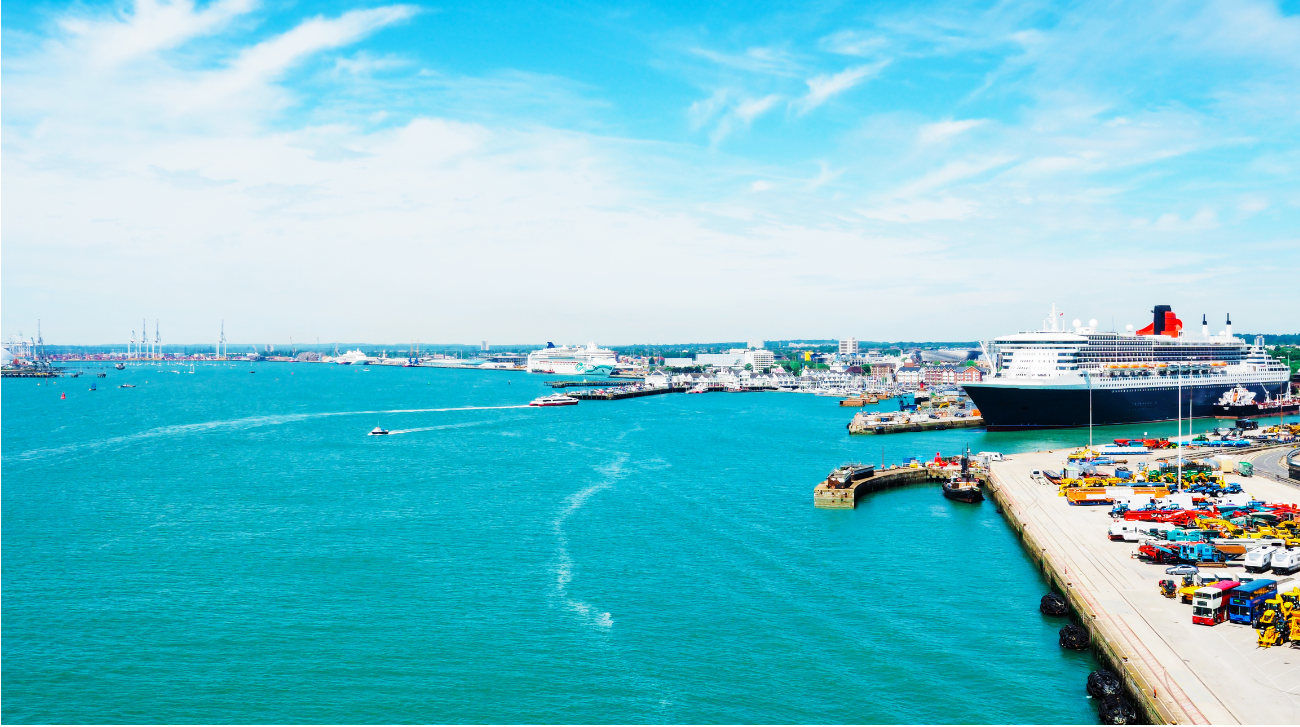Kickstarting the decarbonisation journey of the Southampton Industrial Area and the gas networks of the South of England.

“Hydrogen will be key in our journey to net zero, providing a reliable, affordable and practical supply of clean energy to multiple sectors whilst ensuring security of supply. The creation of hydrogen hubs in and around industry is a great way of achieving scaled hydrogen demand and creating hydrogen economies.
“We are pleased to partner in this project to explore decarbonisation of the Solent area and build on the outputs of the feasibility study. This project can kick start a net zero industrial cluster in Southampton and stimulate net zero gas networks across the South of England.”
Angus McIntosh, Director of Energy Futures, SGN
The decarbonisation of heat, industry and transport in a practical and affordable way will be critical in achieving net zero targets.
Hydrogen and CCS has a pivotal role to play in our transition to a low-carbon economy through its applications across multiple sectors and its potential to provide net zero energy storage. The creation of hydrogen economies in clusters of industry can create sustainable jobs and economic growth. At SGN, we’re working collaboratively with industry on a number of national research projects to build and prove the case for hydrogen as the backbone of our net zero future.
The Project
Our Southampton Water project, in partnership with Macquarie’s Green Investment Group (GIG), is one of them. We’ve commissioned engineering specialists WSP to investigate the opportunities for decarbonisation in the region around the south coast city, which is home to one of six major industrial clusters identified by the Government as still heavily dependent on fossil fuels.
Southampton emits around 2.6 million tonnes of CO2 from various sources, including industrial activities - the city is home to one of the UK’s largest and busiest ports - and customers connected to our gas network for heat. Our project will look at the potential for creating a hydrogen super-hub in the Port of Southampton, and developing a centre of excellence for hydrogen production and distribution on the south coast.
The role that carbon capture, utilisation and storage (CCUS) can play in decarbonising the region will also be scrutinised. A scheme incorporating the technology could reduce emissions significantly, while local hydrogen production presents the opportunity to further decarbonise high-emissions sectors like shipping and industry. This study concluded in June 2021.
On 8 December 2021, we announced the signing of an Memorandum of Understanding between SGN, ExxonMobil and GIG to explore the potential use of hydrogen and carbon capture to help reduce emissions in the Southampton industrial cluster.
An initial feasibility study by SGN and GIG shows the annual hydrogen demand from the cluster, which is home to ExxonMobil’s Fawley complex, could rise to as much as 37,000 GWh by 2050, including the heating demand of 800,000 homes across the South of England.
An increase in the use of hydrogen with carbon capture would help reduce emissions in the area’s industrial sector and stimulate the local economy through the conversion of the natural gas network, while helping reduce emissions from domestic heating and transport.
Our net zero vision for Scotland and the south of England
Southampton Water is one of two flagship projects we’re undertaking to prepare our network in the south of England for a net zero future. In London, we’re a partner on National Grid’s Project Cavendish. This is investigating the use of hydrogen at Greenwich power station to provide zero-carbon fuel for Transport for London, and looking into the use of our existing gas network and storage facilities to overcome the challenge of air quality in the capital.
As our 2045 net zero deadline approaches, we’ll use our work in Southampton as an anchor to integrate hydrogen into our southern network, bringing a greener energy system to South London, Brighton, Kent and beyond.
Meanwhile in Scotland, we’re working to cut emissions from heating and industry: two of the highest-emitting, hardest-to-abate sectors. Our world-first H100 Fife project is preparing to demonstrate decarbonised heating, delivering 100% green hydrogen to 300 homes in Levenmouth. And our North-East Network & Industrial Cluster project is setting out a roadmap for the decarbonisation of industry north of the border.

